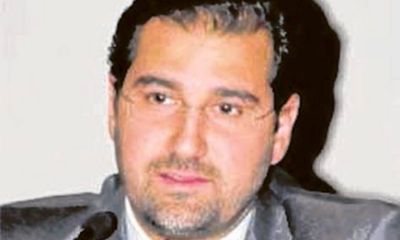
In interview with the New York Times, President Bashar al-Assad’s cousin, Rami Makhlouf promised a fight to “the end.” [1]
“If there is no stability here, there’s no way there will be stability in Israel,” he said in an interview on Monday. “No way, and nobody can guarantee what will happen after, God forbid, anything happens to this regime.”
When asked by Times correspondent Anthony Shahid if it was a warning or a threat, Mr. Makhlouf demurred. “I didn’t say war,” he said. “What I’m saying is don’t let us suffer, don’t put a lot of pressure on the president, don’t push Syria to do anything it is not happy to do.”
At least 10,000 Syrians have been detained over the past few days in a mass arrest campaign carried out against those the government says are “armed gangs” and “Salafists”.
Several men have appeared on Syrian state television offering ‘confessions’ to their involvement in mounting an insurrection with foreign assistance.
Those arrested have included prominent civil rights activists and opposition political figures, five of whom were released yesterday: 81-year-old Hassan Abdel Azim, Hazem al-Nahar, Fayez Sara, Kamal Sheikho and George Sabra.
In Homs clashes between the army and “terrorists” are still occurring around the city, reported Al-Watan, adding that “they have religious extremist backgrounds”.
Heavy fighting took place in Baba Amr district between the army and armed groups, while residents said militants fighting in the city are involved in the drug traffic across the Syrian border and in the West of the country, the newspaper said.
However residents contacted by the Associated Press said tanks were “shelling residential areas”. Syria Today was not able to confirm these reports.
“Shelling and automatic gunfire could be heard early Wednesday in the neighbourhood of Bab Amr and in nearby villages, Mashada, Jobar and Sultanya,” Najati Tayara, a human rights activist, told AFP.
Following large-scale military operations in Banias, 300 prisoners were released in the city, and though tanks remain in the streets, basic services have been restored, reported Al-Arabiya.
Human rights campaigners said at least six civilians, including four women, were killed in raids, somein an attack on an all-women demonstration just outside Banias on Saturday, the news network reported.
Al-Watan said military security had found explosives in Banias while the army is repositioning itself around the city and going into surrounding villages.
The Syrian media described the situation in Banias, Lattakia and Tartous as “calm”, adding that the army continues its “checking missions” which have yielded a number of caches of arms.
In Moadamiyeh near central Damascus sources told Al-Watan there had been no shooting and that all basic services were restored.
Meanwhile, Syria has withdrawn its candidacy for a seat at the UN Human Rights Council.
Kuwait is expected to take Syria’s position at the council, reported the New York Times, but Syria’s representative to the UN has denied this is the case.
Turkish Prime Minister Recip Erdogan issued another statement condemning violence in Syria, and refuting officials’ stories about armed gangs, reported Al-Jazeera Arabic.
The prime minister warned that Syria was about to enter the “Halabja and Hama” phase.
President Assad announced following his meeting with religious figures yesterday from areas around Damascus, including Moadamiyeh and Daraya, he would address the issues they raised, reported Al-Watan.
The delegation said the people face problems including a lack of water and land confiscation.
In other news, Syria’s football association announced today that the season, which was suspended earlier this year, will continue, reported Syria News, an online magazine.
The news follows the government’s announcement yesterday that it is winning the fight against what she described as an “armed uprising” and life is returning to normal.
Finally, the Bakkara tribe have signed a statement that they are fully behind the “executive authority to defeat the saboteurs” and keep the country secure.
Previously one of the leaders of the tribe had called for a national movement to form a united opposition, which would then hold open dialogue with the government.
[1] « Syrian Elite to Fight Protests to ‘the End’ », by Anthony Shadid, The New York Times, 10 May 2011.












Stay In Touch
Follow us on social networks
Subscribe to weekly newsletter